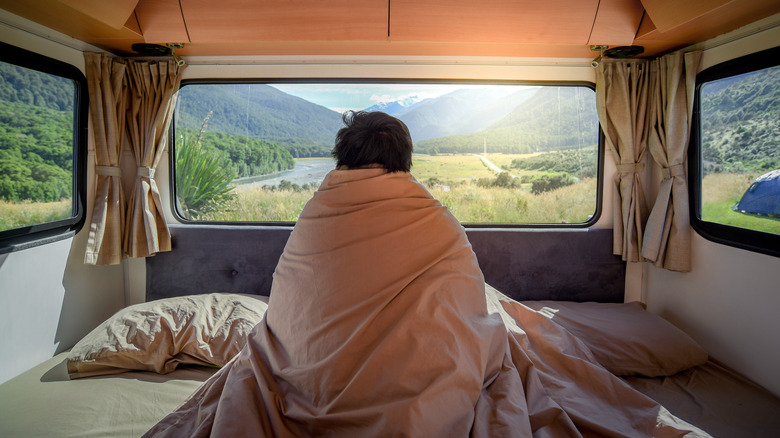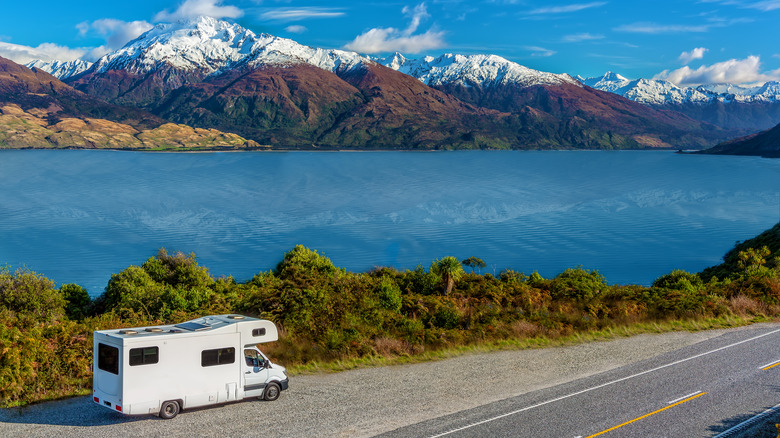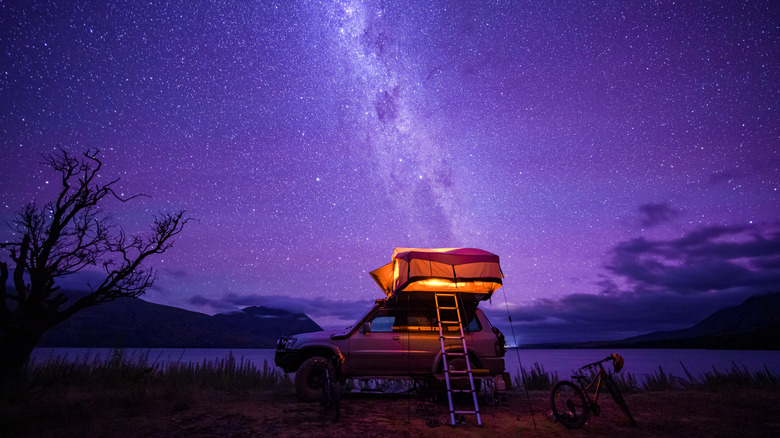Whether it’s planes, trains, or automobiles, it seems the ways to travel around the world are endless. Some modes of transportation are simply better than others in particular destinations. In New York City, folks heavily rely on the MTA subway system. In Italy and Japan, high-speed trains are the way to go. New Zealand, however, has one unique way that makes the most sense to best properly explore its rugged natural beauty.
Did you really go to New Zealand if you didn’t rent a camper van? That is the question. Aside from the obvious reasons one rents a car when traveling, like having control over your own itinerary, moving entirely at your own pace, and not rushing or planning around plane and train schedules, there are a few strong reasons almost everyone who visits New Zealand decides to live out their van life dreams. If you’re looking to get away from it all in a place where there are more sheep than people, let’s start planning your camper van getaway to one of the most beautiful places on the planet.
Ditch the hotel and stay at a campground

Whether you decide to explore New Zealand’s North Island or South Island (or both), one thing is for sure: if you’re renting a camper van, you’ll be sleeping at a campground. While you could technically still sleep at a hotel, that would somewhat defeat the point. Part of the charm of camping around New Zealand is waking up on stunning beaches with bright blue waters, like those of Lake Pukaki and Lake Tekapo, which both get their vibrant color thanks to “glacial flour.”
The most common campgrounds in New Zealand are commercial campgrounds, holiday campgrounds, and Department of Conservation campsites. Many of these campgrounds have bathrooms, toilets, and kitchens for campers to use. There is a nightly fee, but it’s usually no more than $10. If you’re thinking, “Why do I need a campground to park my van? Can’t I just park it on the street and sleep there?” Think again. Several camper laws in New Zealand prohibit you from parking just anywhere. Throughout cities and towns, you will see several signs that forbid parking your camper van overnight. To best determine where the nearest campgrounds are, download an app such as CamperMate.
These roads were made for driving

What is it about New Zealand that attracts so many van lifers? Aside from the obvious reason that the country is one of the most mesmerizing places on the planet, it’s highly recommended to, at least, rent a car when visiting New Zealand because public transportation is somewhat limited. The country has a fairly reliable InterCity bus system that often offers USB plugs and free WiFi, but the roads in New Zealand were meant for one to drive. When driving around the country, you’ll notice plenty of stunning views with space for your vehicle to pull over so you can take in the incredible landscape.
It’s crucial to remember that in these parts of the world, driving on the left side of the road is key. If that sounds scary, don’t fret. The roads are well paved, and in many parts of the country, there are arrows painted on the road to guide you to ensure you’re on the right side.

